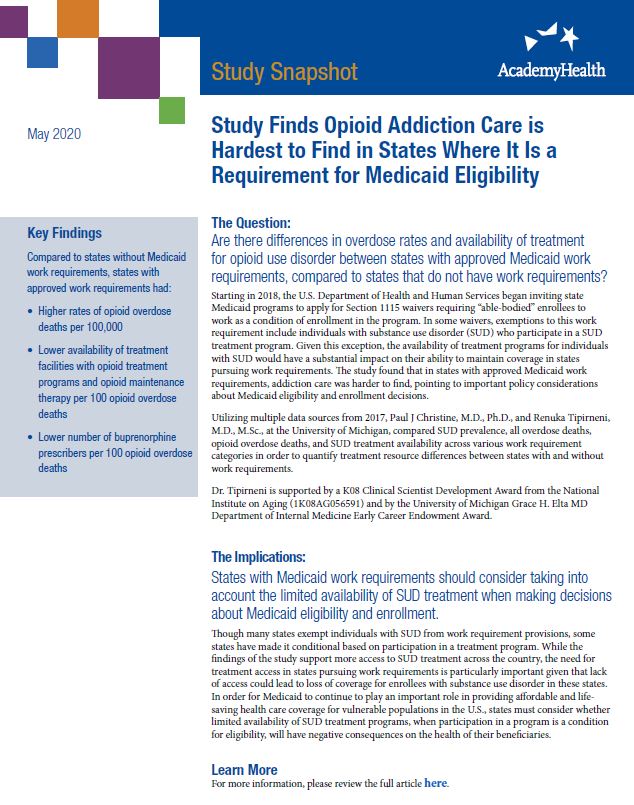
Study Snapshot: Study Finds Opioid Addiction Care is Hardest to Find in States Where It Is a Requirement for Medicaid Eligibility
The study snapshot outlines findings from research examining opioid addiction treatment in states with and without Medicaid work requirements.
Starting in 2018, the U.S. Department of Health and Human Services began inviting state Medicaid programs to apply for Section 1115 waivers requiring “able-bodied” enrollees to work as a condition of enrollment in the program. In some waivers, exemptions to this work requirement include individuals with substance use disorder (SUD) who participate in a SUD treatment program. Given the high prevalence of SUD within the Medicaid population, the availability of SUD treatment may be crucial to maintenance of Medicaid eligibility for individuals in states pursuing work requirements.
Members of AcademyHealth’s State-University Partnership Learning Network (SUPLN), Paul J. Christine, M.D., Ph.D., and Renuka Tipirneni, M.D., M.Sc., sought to quantify the availability of SUD treatment resources in states with and without Medicaid work requirements, ultimately finding that in states with approved Medicaid work requirements, addiction care was harder to find. These results point to important policy considerations about Medicaid eligibility and enrollment decisions. In order for Medicaid to continue to play an important role in providing affordable and life-saving health care coverage for vulnerable populations in the U.S., states must consider whether limited availability of SUD treatment programs, when participation in a program is a condition for eligibility, will have negative consequences on the health of their beneficiaries.